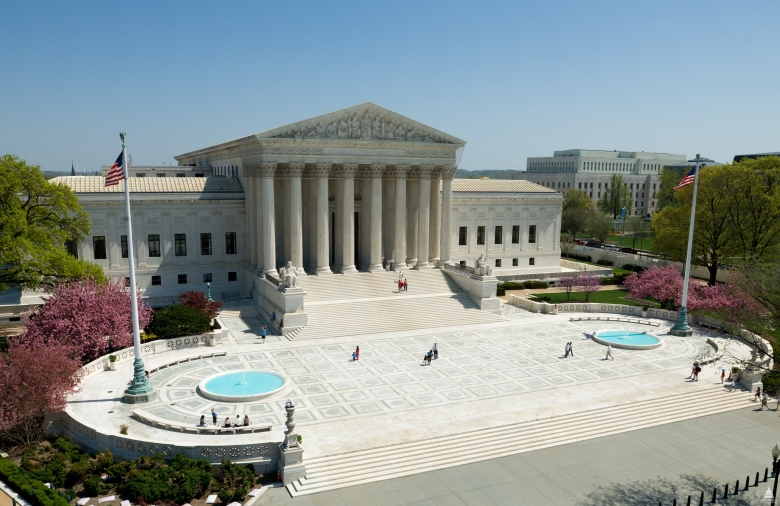WASHINGTON – The U.S. Supreme Court ruled Thursday in Thomas More Law Center v. Bonta and Americans for Prosperity Foundation v. Bonta that Americans are free to support nonprofit organizations and their causes without fear of harassment or threats. The court determined that state governments cannot impose blanket donor-disclosure requirements forcing charities and other nonprofit organizations to disclose their donors, which would thereby subject them to the possibility of adverse treatment simply for supporting causes with which some people may disagree.
Alliance Defending Freedom attorneys represent Michigan-based Thomas More Law Center, which filed suit after the California Attorney General’s Office demanded the names and addresses of its major donors. A district court trial showed that the office leaked such information like a sieve and created a perfect target for hackers by storing confidential donor information on the internet, where the data could be easily discovered.
“The Supreme Court has confirmed that every American is free to peacefully support causes they believe in without fear of harassment or intimidation,” said ADF Senior Counsel and Vice President of Appellate Advocacy John Bursch. “Public advocacy is for everyone, not just those able to weather abuse. Forced donor disclosure is a threat to everyone and discourages both charitable giving and participation in the marketplace of ideas. The court correctly upheld the First Amendment’s promise of the freedom to associate with like-minded groups, which includes the right to donor privacy.”
“California casts a dragnet for sensitive donor information from tens of thousands of charities each year…,” the Supreme Court wrote in its opinion. And that “blanket demand” for confidential donor information is “facially unconstitutional.” The court does “not doubt that California has an important interest in preventing wrongdoing by charitable organizations,” but there is “a dramatic mismatch” between that interest and California’s “dragnet” disclosure mandate: “Narrow tailoring is crucial where First Amendment activity is chilled—even if indirectly—‘[b]ecause First Amendment freedoms need breathing space to survive…,’” and California “falls far short of satisfying the means-end fit” that the Constitution requires.
Accordingly, the court remanded for the district court to enter an injunction prohibiting California from blanket collection of charitable organizations’ confidential donor information.
Thomas More Law Center is a nonprofit organization based in Michigan that defends and promotes religious freedom, moral and family values, and the sanctity of human life. Roughly 5% of its donors are California residents, and it has operated as a charity in good standing with California’s attorney general for many years. Beginning in March 2012, the Attorney General’s Office began to harass the center, demanding the names and addresses of its largest financial supporters.
“Potential givers to charities have good reason to fear being doxed—that is, having their public information spread for malicious purposes,” Bursch added. “Too many are quick to ostracize, lambast, and threaten those with whom they disagree. Everyone should condemn this behavior—often described as ‘cancel culture’—and we’re pleased the Supreme Court did so today.”
Parties across the ideological spectrum—including 22 attorneys general, the American Civil Liberties Union, the NAACP, the Human Rights Campaign, ChinaAid, and others—filed friend-of-the-court briefs in support of the Thomas More Law Center. As the Supreme Court recognized, these filings underscored the “gravity of the privacy concerns” that were at stake, and they bolstered the court’s conclusion that California’s mandate imposed an unconstitutional and “widespread burden on donors’ associational rights.”
Alliance Defending Freedom is an alliance-building, non-profit legal organization committed to protecting religious freedom, free speech, parental rights, and the sanctity of life.
# # # | Ref. 68959
